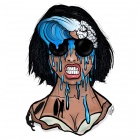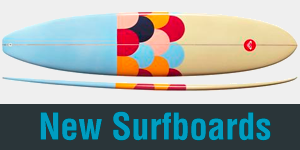Well. Hey there
im currectly having a shorboard(6"2, 37L) i got after the funboard i had (7"6 53L), the shorboard is too small for me.
i mean, i have the balance and everything but catching waves really being hard time for me, feeling just i dont have the power to catch the wave i guess thats happening because of some balance problems the big jump from the funboard and etc.
My Height 1.76M and my Weight is 80Kg.
Thanks alot
up
This is a great way of explaining it.
Even if OP could manage that shortboard better (which I bet he would with a few more sessions), doesn't mean he should be surfing that board. It took me awhile before finally understanding that even if you can surf a particular board doesn't mean that's the board you should be riding (if you want to improve your skills.) You want to be on whatever board gives you some margin for error, to allow for learning new techniques, less than ideal conditions, or even just being able to improve wave awareness/focus. It doesn't mean we should all surf longboards for the first 5 years, we should surf whatever board still gives us some comfort margin in which to develop our skills.
I don't totally flounder with a short board (I surf a beach break that is fast so easy to catch when smaller), but I'm really not good at it and have no margin for error. It's actually a fun challenge once in awhile, but that's about it.
Instead of spending 4-5 sessions just to get to baseline wave-riding ability on a shorter board, may as well have had 4-5 sessions on your bigger board focusing on improving your bottom turn, top turn, etc. and better improve your skills..well at least I learned that!
Return to Surfboard Advice
Shorboard switch from 7"6 funboard
Get advice on the best surfboard for your needs. Tailored advice from knowledgeable surfers and surfboard shapers.
- TalGo
- New Member
- Posts: 1
- Likes: 0 post
- Liked in: 0 post
- Joined: Mon Aug 26, 2019 12:24 pm
Re: Shorboard switch from 7"6 funboard
![]() by oldmansurfer » Mon Aug 26, 2019 9:47 pm
by oldmansurfer » Mon Aug 26, 2019 9:47 pm
Yes it is a more than 1 foot jump down. It requires being able to take off later and paddle better and lineup the waves better. How many times have you tried to surf the board?
So what is worse.... dying or regretting it for the rest of my life? Obviously I chose not regretting it.
-

oldmansurfer - Surf God
- Posts: 8193
- Likes: 0 post
- Liked in: 0 post
- Joined: Mon Aug 12, 2013 9:10 pm
- Location: Kauai
Re: Shorboard switch from 7"6 funboard
![]() by waikikikichan » Mon Aug 26, 2019 10:06 pm
by waikikikichan » Mon Aug 26, 2019 10:06 pm
So we understand you are having difficulties moving down from a 7'6" fun to a 6'2" short. BUT what is your question ?
1) "i don't have the power to catch the wave" - now that your foot can stick out behind the board, unlike on the funboard, you can now kick with your legs to gain a quick burst of speed when the wave lifts you up. ( but done wrong, will upset your "balance" )
2) "because of some balance problems the big jump from the funboard" - with experience you'll learn to grab the deck with your stomach like a suction cup so it doesn't wiggle side to side on the paddle. That core muscle and technique takes time. ( learned on a longer board first )
3) "the shortboard is too small for me" - Okay, so now you realize your mistake, so just go back to your 7'6" and learn how to do back side off the lips and consistently kick out standing on your feet before moving down to a 6'8" - 7'2" hybrid / big fish.
1) "i don't have the power to catch the wave" - now that your foot can stick out behind the board, unlike on the funboard, you can now kick with your legs to gain a quick burst of speed when the wave lifts you up. ( but done wrong, will upset your "balance" )
2) "because of some balance problems the big jump from the funboard" - with experience you'll learn to grab the deck with your stomach like a suction cup so it doesn't wiggle side to side on the paddle. That core muscle and technique takes time. ( learned on a longer board first )
3) "the shortboard is too small for me" - Okay, so now you realize your mistake, so just go back to your 7'6" and learn how to do back side off the lips and consistently kick out standing on your feet before moving down to a 6'8" - 7'2" hybrid / big fish.
-

waikikikichan - Surf God
- Posts: 4783
- Likes: 0 post
- Liked in: 0 post
- Joined: Mon Sep 01, 2014 11:35 pm
- Location: Tokyo, Japan
Re: Shorboard switch from 7"6 funboard
![]() by dtc » Tue Aug 27, 2019 11:11 am
by dtc » Tue Aug 27, 2019 11:11 am
To catch a wave requires paddling, positioning and timing.
I like to think of it in terms of margin of error.
On a long board you might need to get these things 80% right to catch a wave. On a shortboard you might need to get it 95% right (figures are obviously made up for illustration, but you get the point)
So you are discovering you were probably getting things 85% right. Comfortable for a longer board, but on a short board that means you don’t catch any waves at all.
Your options are to go back to a longer board until you are at 95% level, or continue to struggle with the short board and aim to improve, but in the meantime failing most of the time.
There is no magic answer. You need to improve some or all of your paddling, positioning and timing
I like to think of it in terms of margin of error.
On a long board you might need to get these things 80% right to catch a wave. On a shortboard you might need to get it 95% right (figures are obviously made up for illustration, but you get the point)
So you are discovering you were probably getting things 85% right. Comfortable for a longer board, but on a short board that means you don’t catch any waves at all.
Your options are to go back to a longer board until you are at 95% level, or continue to struggle with the short board and aim to improve, but in the meantime failing most of the time.
There is no magic answer. You need to improve some or all of your paddling, positioning and timing
- dtc
- Surf God
- Posts: 3833
- Likes: 0 post
- Liked in: 0 post
- Joined: Mon May 21, 2012 4:58 am
Re: Shorboard switch from 7"6 funboard
![]() by steveylang » Tue Aug 27, 2019 5:04 pm
by steveylang » Tue Aug 27, 2019 5:04 pm
dtc wrote:To catch a wave requires paddling, positioning and timing.
I like to think of it in terms of margin of error.
On a long board you might need to get these things 80% right to catch a wave. On a shortboard you might need to get it 95% right (figures are obviously made up for illustration, but you get the point)
So you are discovering you were probably getting things 85% right. Comfortable for a longer board, but on a short board that means you don’t catch any waves at all.
This is a great way of explaining it.
Even if OP could manage that shortboard better (which I bet he would with a few more sessions), doesn't mean he should be surfing that board. It took me awhile before finally understanding that even if you can surf a particular board doesn't mean that's the board you should be riding (if you want to improve your skills.) You want to be on whatever board gives you some margin for error, to allow for learning new techniques, less than ideal conditions, or even just being able to improve wave awareness/focus. It doesn't mean we should all surf longboards for the first 5 years, we should surf whatever board still gives us some comfort margin in which to develop our skills.
I don't totally flounder with a short board (I surf a beach break that is fast so easy to catch when smaller), but I'm really not good at it and have no margin for error. It's actually a fun challenge once in awhile, but that's about it.
Instead of spending 4-5 sessions just to get to baseline wave-riding ability on a shorter board, may as well have had 4-5 sessions on your bigger board focusing on improving your bottom turn, top turn, etc. and better improve your skills..well at least I learned that!
“The best time of my life was when I was a young man, surfing at Malibu.”
–J.Paul Getty
–J.Paul Getty
-

steveylang - Local Hero
- Posts: 205
- Likes: 0 post
- Liked in: 0 post
- Joined: Mon Nov 07, 2016 7:20 pm
5 posts
• Page 1 of 1
Similar topics
Hossegor / SW France for "Intermediate"
RELATED: Surfing Travel Tips, Spot Locations and Info
Author: chowmt
Replies: 1
RELATED: Surfing Travel Tips, Spot Locations and Info
Author: chowmt
Replies: 1
Like new 4a 8" in smoke black FS or EX
RELATED: Surf Classifieds: Buy, Sell and Exchange
Author: dlew
Replies: 2
RELATED: Surf Classifieds: Buy, Sell and Exchange
Author: dlew
Replies: 2
PSA: "Surf" skateboards are not worth it for beginner surfer
RELATED: Surfing Lessons For All
Author: pmcaero
Replies: 64
RELATED: Surfing Lessons For All
Author: pmcaero
Replies: 64
Latest
-
17 hours ago by Kulharin3 comments
-
11 days ago by Swimmy Tim5 comments
-
12 days ago by BaNZ3 comments
-
17 days ago by BoMan6 comments
-
20 days ago by hannaconner5 comments
-
1 month ago by BaNZ4 comments
-
1 month ago by HaoleKook4 comments
-
1 month ago by Jimgem2 comments
- The team • Delete all board cookies • All times are UTC


